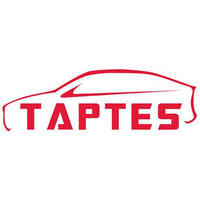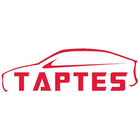Tesla Charging: Select Superchargers in the US are now open to other EVs

Tesla has been a pioneer in the electric vehicle industry, with its Model S becoming the first all-electric car to win the Motor Trend Car of the Year award back in 2013. One of the biggest advantages Tesla had over its competitors was its Supercharger network, a network of fast-charging stations that allowed Tesla drivers to travel long distances without worrying about running out of juice. However, Tesla has now announced that it will be opening up some of its Supercharger stations to other electric vehicles in the US. This move is likely to be a game-changer for the electric vehicle industry, as it will make long-distance travel much easier for non-Tesla EV owners.
Superchargers are Tesla's proprietary charging stations, which are capable of delivering up to 250 kW of power to Tesla vehicles. This enables Tesla drivers to add about 75 miles of range in just 5 minutes of charging. However, until now, only Tesla owners could use these Superchargers. Non-Tesla EV owners had to rely on third-party charging networks, which often required a subscription and were not always as reliable as Tesla's Superchargers.
Tesla's decision to open up some of its Superchargers to other electric vehicles is a significant step forward for the electric vehicle industry. The move is likely to encourage other automakers to invest in their own charging networks, which will make it easier for consumers to choose an electric vehicle over a gas-powered car.
Tesla has not yet revealed which Supercharger stations will be open to other EVs or when this will happen, but the company has said that it will start with Superchargers located near popular routes and destinations. This makes sense, as it will allow non-Tesla EV owners to travel more easily to popular destinations without worrying about running out of charge.
There are a few technical challenges that Tesla will need to overcome before it can open up its Superchargers to other EVs. For example, Tesla uses a proprietary plug design for its Superchargers, which means that other EVs will need to be equipped with an adapter to use the stations. Tesla has not yet revealed whether it will provide these adapters or if EV owners will need to purchase them separately.
Another challenge is the capacity of the Supercharger network. Tesla already has more than 25,000 Superchargers worldwide, but the network is still not large enough to meet the demand for long-distance travel for all EV owners. Opening up some of its Superchargers to other EVs will likely increase demand for the network, and Tesla will need to invest in expanding its charging infrastructure to meet this demand.
For more info: https://www.tesla.com/support/non-tesla-supercharging
In conclusion, Tesla's decision to open up some of its Superchargers to other electric vehicles is a significant step forward for the electric vehicle industry. It will make long-distance travel much easier for non-Tesla EV owners, and it will likely encourage other automakers to invest in their own charging networks. However, there are still some technical challenges that need to be overcome, such as the capacity of the Supercharger network and the need for adapters for non-Tesla EVs. Nonetheless, this move by Tesla is a positive development for the electric vehicle industry, and it will help to accelerate the transition to a cleaner, more sustainable transportation system.
Superchargers are Tesla's proprietary charging stations, which are capable of delivering up to 250 kW of power to Tesla vehicles. This enables Tesla drivers to add about 75 miles of range in just 5 minutes of charging. However, until now, only Tesla owners could use these Superchargers. Non-Tesla EV owners had to rely on third-party charging networks, which often required a subscription and were not always as reliable as Tesla's Superchargers.
Tesla's decision to open up some of its Superchargers to other electric vehicles is a significant step forward for the electric vehicle industry. The move is likely to encourage other automakers to invest in their own charging networks, which will make it easier for consumers to choose an electric vehicle over a gas-powered car.
Select Superchargers in the US are now open to other EVs → https://t.co/zObpFM4li1 pic.twitter.com/wQW0KGvlpw
— Tesla Charging (@TeslaCharging) February 28, 2023
Tesla has not yet revealed which Supercharger stations will be open to other EVs or when this will happen, but the company has said that it will start with Superchargers located near popular routes and destinations. This makes sense, as it will allow non-Tesla EV owners to travel more easily to popular destinations without worrying about running out of charge.
There are a few technical challenges that Tesla will need to overcome before it can open up its Superchargers to other EVs. For example, Tesla uses a proprietary plug design for its Superchargers, which means that other EVs will need to be equipped with an adapter to use the stations. Tesla has not yet revealed whether it will provide these adapters or if EV owners will need to purchase them separately.
Another challenge is the capacity of the Supercharger network. Tesla already has more than 25,000 Superchargers worldwide, but the network is still not large enough to meet the demand for long-distance travel for all EV owners. Opening up some of its Superchargers to other EVs will likely increase demand for the network, and Tesla will need to invest in expanding its charging infrastructure to meet this demand.
For more info: https://www.tesla.com/support/non-tesla-supercharging
In conclusion, Tesla's decision to open up some of its Superchargers to other electric vehicles is a significant step forward for the electric vehicle industry. It will make long-distance travel much easier for non-Tesla EV owners, and it will likely encourage other automakers to invest in their own charging networks. However, there are still some technical challenges that need to be overcome, such as the capacity of the Supercharger network and the need for adapters for non-Tesla EVs. Nonetheless, this move by Tesla is a positive development for the electric vehicle industry, and it will help to accelerate the transition to a cleaner, more sustainable transportation system.






Leave a comment